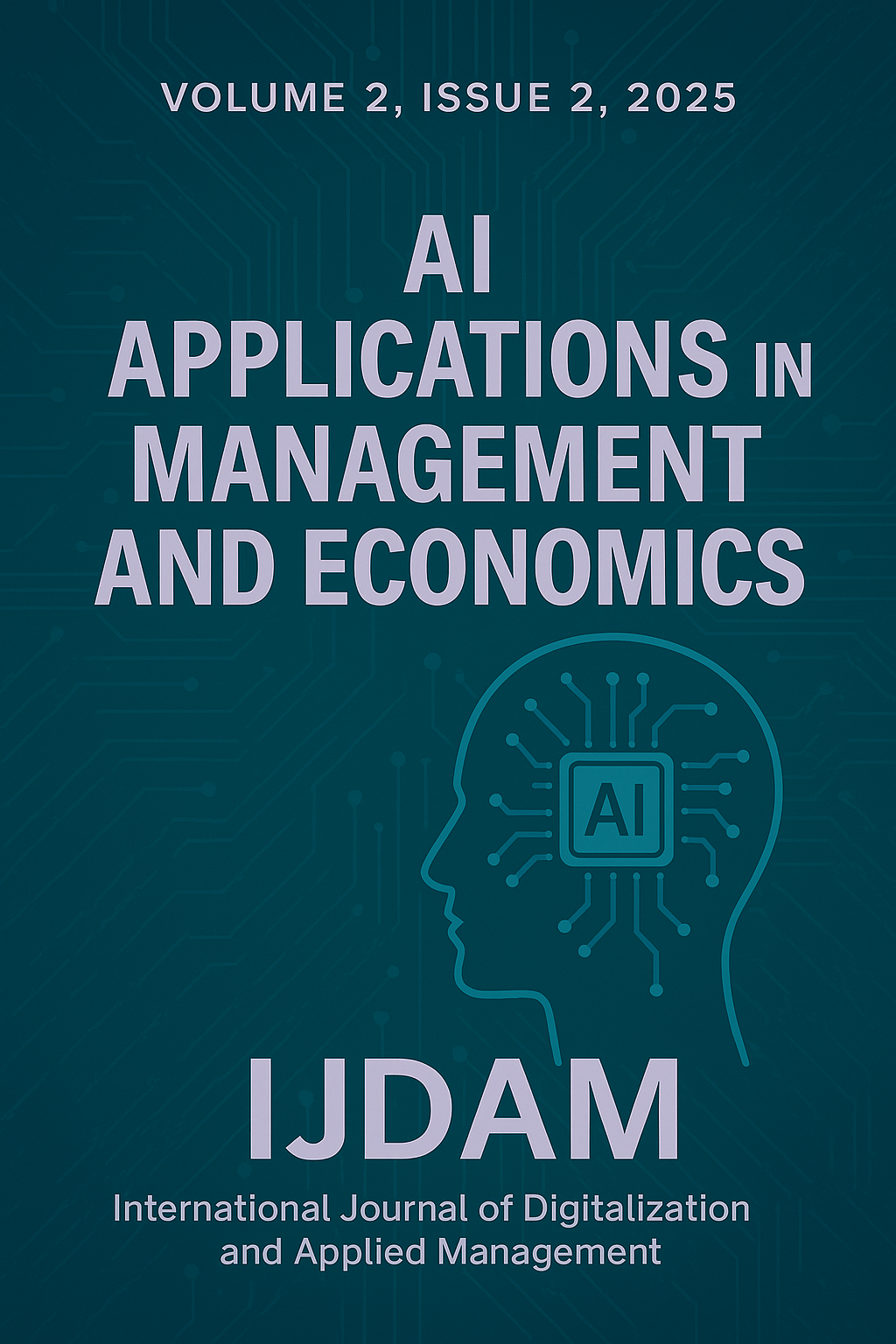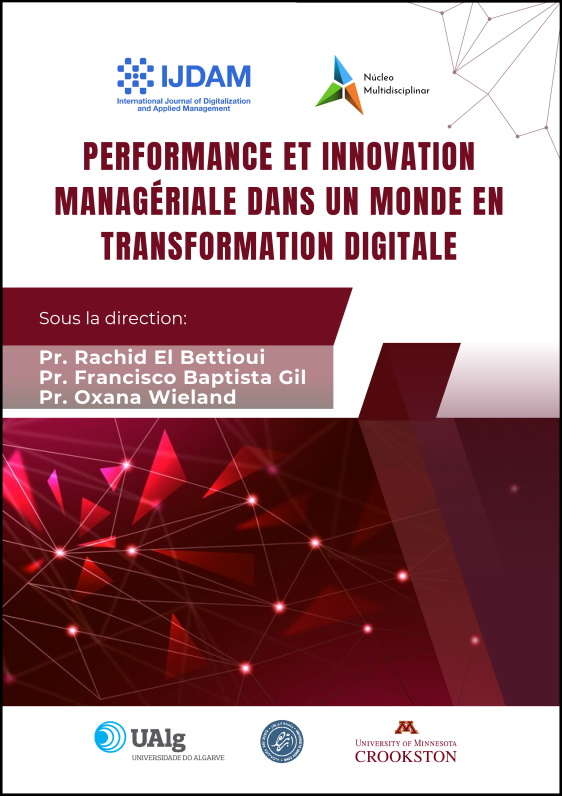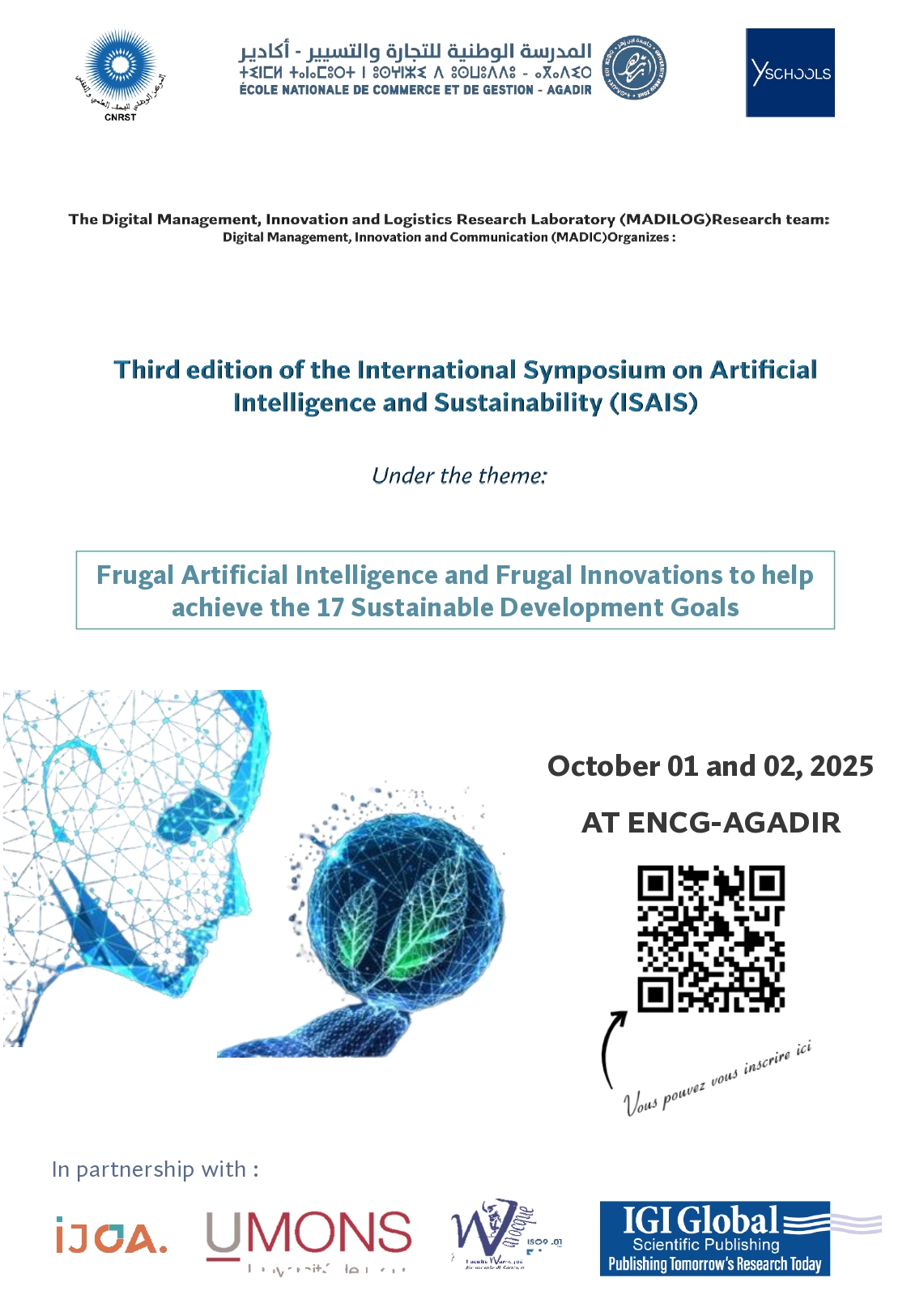The Impact of the Digital Economy on Economic Growth in the MENA Region
An Empirical Exploration
DOI:
https://doi.org/10.23882/ijdam.25185Keywords:
Digital economy, economic growth, MENA region, panel data, generalized method of momentsAbstract
The digital economy represents a new economic paradigm centered on knowledge and digital information, driven by technology and facilitated by the information network. It enables the integration of digital technology and the real economy, leading to increased levels of digitization, connectivity and intelligence in society. This study analyzes the impact of the digital economy on economic growth in MENA countries between 2002 and 2021, using the generalized method of moments. The impact of the digital economy, as measured by technology indicators - Internet, mobile telephony and fixed broadband - on the economic growth of MENA countries depends on their level of development and on measures of the technologies that capture the digital economy. ICT has a positive influence on economic growth in these countries, and can be used as a tool by policy-makers.
References
Abdelkader, H. (2024). Mobile penetration and economic growth in Egypt: A structural econometric approach. Digital Policy, Regulation and Governance. https://doi.org/10.1108/DPRG-06-2023-0076
Acemoglu, D. (2002). "Directed Technical Change". The Review of Economic Studies, 69(4), 781–809.
Arellano, M., & Bond, S. (1991). Some tests of specification for panel data : Monte Carlo evidence and an application to employment equations. The review of economic studies, 58(2), 277-297.
Aziki, FADILI, M. H., & EL BETTIOUI, R. (2025). Étude quantitative des déterminants technologiques d'acceptabilité de l'IA générative chez les experts-comptables au Maroc. IJDAM• International Journal of Digitalization and Applied Management, 2(1), 82-103.
Blundell, R., & Bond, S. (1998). Initial conditions and moment restrictions in dynamic panel data models. Journal of econometrics, 87(1), 115-143.
Bagheri, M., & Rodrigues, R. G. (2017). The impact of broadband access on GDP per capita : The case of OECD countries. Indian Journal of Marketing, 47(6), 50-66.
Corrado, C., Hulten, C., & Sichel, D. (2009). Intangible Capital and U.S. Economic Growth. Review of Income and Wealth.
El Bettioui, R. (2023). Le capital humain, l’employabilité et l’entrepreneuriat: Cas du Programme d’Insertion par les Activités Economiques. [RMd] RevistaMultidisciplinar, 5(3), 225-258.
Gomes, S., Lopes, J. M., & Ferreira, L. (2022). The impact of the digital economy on economic growth: The case of OECD countries. RAM. Revista de Administração Mackenzie, 23(6), eRAMD220029.
Guo, S., Ding, W., & Lanshina, T. (2017). Digital Economy for Sustainable Economic Growth. International Organisations Research Journal, 12(4), 169-184.
Hwang, Y. K. (2023). The synergy effect through combination of the digital economy and transition to renewable energy on green economic growth: Empirical study of 18 Latin American and caribbean countries. Journal of Cleaner Production, 418, 138146.
Jorgenson, D. W., Ho, M. S., & Stiroh, K. J. (2005). Information Technology and the American Growth Resurgence. MIT Press.
Liao, W. (2023). How does the digital economy affect the development of the green Economy ? Evidence from Chinese cities. PloS One, 18(8), e0289826.
Majeed, M. T. (2020). Do digital governments foster economic growth in the developing world? An empirical analysis. NETNOMICS : Economic Research and Electronic Networking, 21(1), 1-16.
Mátyás, L., & Sevestre, P. (Eds.). (2013). The econometrics of panel data : handbook of theory and applications (Vol. 28). Springer Science & Business Media.
Pan, W., Xie, T., Wang, Z., & Ma, L. (2022). Digital economy: An innovation driver for total factor productivity. Journal of business research, 139, 303-311.
Pang, J., Jiao, F., & Zhang, Y. (2022). An analysis of the impact of the digital economy on high-quality economic development in China—a study based on the effects of supply and demand. Sustainability, 14(24), 16991.
Pang, J., Zhang, Y., & Jiao, F. (2023). The Impact of the Digital Economy on Transformation and Upgrading of Industrial Structure : A Perspective Based on the “Poverty Trap”. Sustainability, 15(20), 15125.
Romer, P. M. (1990). Endogenous Technological Change. Journal of Political Economy, 98(5), S71–S102.
Safronchuk, M. V., & Sergeeva, M. V. (2021). The concept of economic growth through digital economy perspective. In Modern Global Economic System : Evolutional Development vs. Revolutionary Leap 11 (pp. 1264-1271). Springer International Publishing.
Schumpeter, J. A. (1934). The theory of economic development ; Harvard University Press: Cambridge, MA, USA.
Schumpeter, J. A. (1939). Business cycles: A theoretical, historical and statistical analysis of the capitalist process. Sheng, Z., Zhu, C., & Chen, M. (2024). Exploring the Impact of the Digital Economy on Green Total Factor Productivity—Evidence from Chinese Cities. Sustainability, 16(7), 2734.
Sevestre, P. (2002). Econométrie des données de panel (pp. 109-152). Paris : Dunod.
Solow, R. M. (1988). La Théorie de la croissance et son évolution. Revue française d'économie, 3(2), 3-27.
Xiang, Y., & Shi, G. (2022, July). The Impact of Digital Economy Development on Economic Growth: An Empirical Study Based on the Yangtze River Economic Zone. In International conference on Variability of the Sun and sun-like stars : from asteroseismology to space weather (pp. 751-760). Singapore : Springer Nature Singapore.
Zhang, W., Zhao, S., Wan, X., & Yao, Y. (2021). Study on the effect of digital economy on high-quality economic development in China. PloS one, 16(9), e0257365.
Downloads
Published
How to Cite
Issue
Section
License
Copyright (c) 2025 Mohamed IDALFAHIM, Rachid EL BETTIOUI, Rachid ELGADROURI, Saad ELOUARDIRHI

This work is licensed under a Creative Commons Attribution-NonCommercial 4.0 International License.


 Portugal
Portugal










